Previous Subchapter → 3.4 Summary
So when it comes to Russia’s security paranoia surrounding NATO, it’s not unfounded, in recent years denialism surrounding the Western promises not to expand NATO has become very common, and although we did discuss this already in the Ukraine Narratives documentary, it’s worth a retread to put this topic to rest.
The denialism hinges on 2 basic points:
-
The “one inch to the east” quote from U.S. diplomat James Baker
-
And a quote from Gorbachev claiming “the topic of Nato expansion was never discussed”, you can find these points in major media outlets and even NATO itself.
It is true that when putting the “one inch east” quote in context, it does seem to be referring to Germany and not Eastern Europe, but this is one quote from one discussion Soviet and Western leaders had regarding the end of the Eastern Bloc, there are many other quotes very similar to the “one inch east” quote that clearly do refer to Eastern Europe as a whole.
Take this one for example, where Vice Chancellor and Foreign Affairs Minister of West Germany, Hans-Dietrich Genscher, explains in a speech that NATO should not be moving closer to the Soviet borders, as this would be an “impairment of Soviet security interests”,
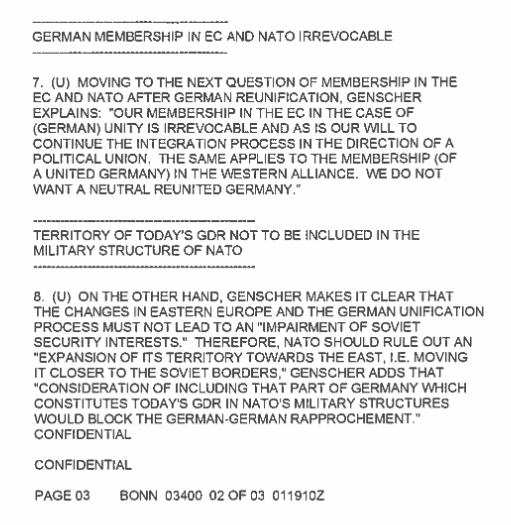
in a conversation only a few days later he spells out directly that he is not just talking about Germany, but Eastern Europe as a whole, naming Poland as an example, he points out that the Russians must be assured that a country like Poland won’t leave the Warsaw Pact one day and then join NATO the next,
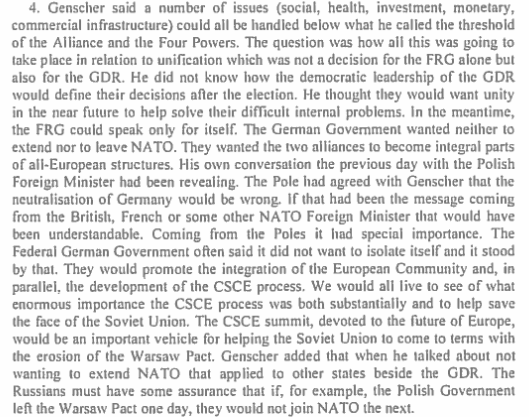
Baker can also be found noting that the Soviet leadership was opposed to any extension of the “NATO zone”, and of course we can refer back to the conversation between Yazov and John Major, Yazov named specific countries in Eastern Europe he feared could join NATO, and was assured this wouldn’t happen, all of the named countries later did.
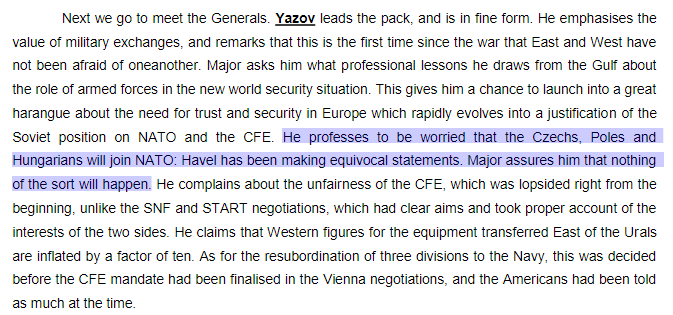
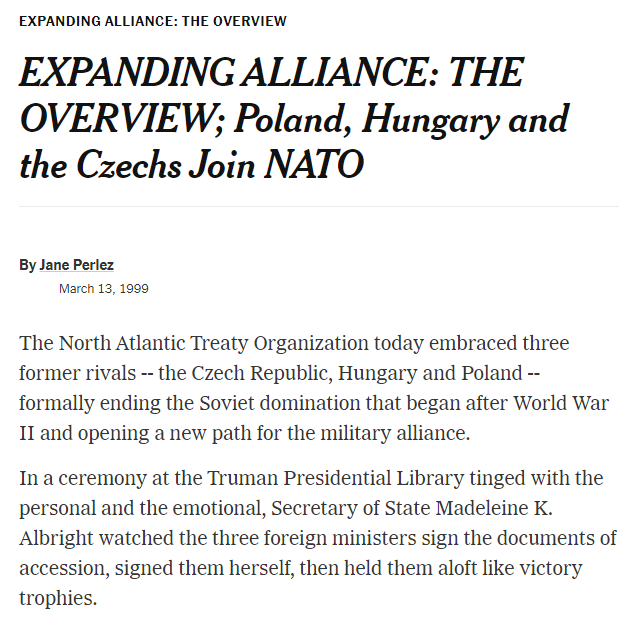
There is no possible way these remarks could be interpreted as NATO only making pledges related to Germany, and never discussing any other countries, let’s make this clear, anyone who is claiming these promises surrounding NATO are fake, Russian propaganda or some other kind of lie is either misinformed or wilfully lying. Despite recent attempts to deny the existence of these promises, it is a historical fact that they were made.
And you don’t have to take our word for it, you can read all of these documents for yourselves if you want to, all of these documents are sourced from the George Washington University’s “National Security Archive”, a huge collection of documents obtained by freedom of information requests, the documents surrounding NATO promises can be found in sections in the archive known as “NATO Expansion: What Gorbachev Heard”, “NATO Expansion: What Yeltsin Heard” and “NATO Expansion – The Budapest Blow Up 1994”.
And if you, like most people, don’t want to sift through document after document to find key quotes, it gets easier, this article from French outlet “Les Crises” lists all of the key quotes on this topic and contains the documents in its sources list.
So, having read all of these documents, how can we explain the quote from Gorbachev?
To start with, it’s important to point out is that this quote has been taken out of context, the quote is from a 2014 article by a Russian outlet known as Russia Beyond, in this interview he clearly states that NATO expansion is a “violation of the spirit of the statements and assurances” made in 1990 and a “mistake”, and that he agrees this expansion is partly to blame for the crisis in Ukraine and across Europe, but he still does make the claim that NATO expansion wasn’t discussed, so how can we make sense of this?
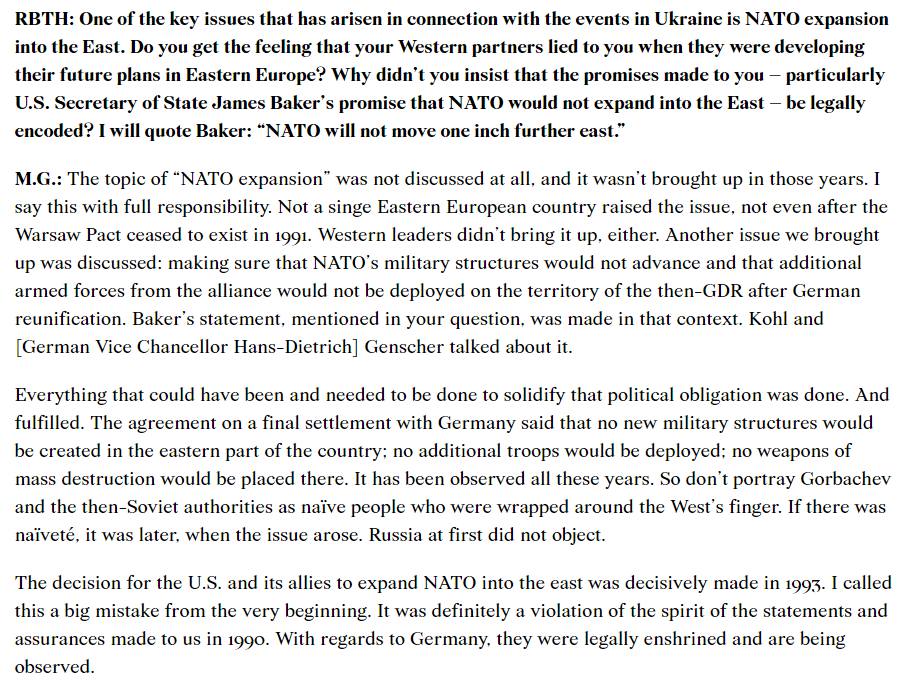
Well, we know what he’s saying isn’t true because the records disprove it, but he has no reason to purposefully lie about this topic, the best possible explanation we could come up with is that he’s simply misremembering these events, remember that this interview took place in 2014, almost 25 years after these events took place.
So aggregators are pointing to a single quote from the time and an out of context quote from someone misremembering the events to deny the mountains of evidence that these conversations did happen.